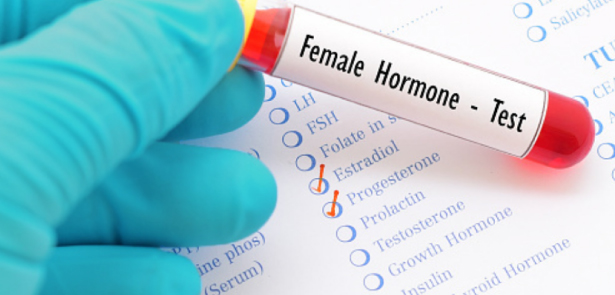
Hormonal Examinations:
These tests measure the levels of hormones in the blood, urine, or saliva. Hormones are chemicals that are produced by endocrine glands in the body and affect various functions such as growth, reproduction, metabolism, and mood. Hormonal examinations can help diagnose or exclude certain diseases or disorders related to hormones, such as hypothyroidism, hyperthyroidism, polycystic ovary syndrome, or prostate cancer. Here are some of the hormonal tests we offer:
This hormone is produced by the pituitary gland in the brain and affects the secretion of thyroid hormones (T3) and (T4). TSH testing helps to diagnose cases of hypothyroidism or hyperthyroidism.
This hormone is produced by the thyroid gland and affects the rate of burning calories and oxygen in the body. FT4 testing helps to diagnose cases of hypothyroidism or hyperthyroidism.
This hormone is produced by the thyroid gland and affects the rate of burning calories and oxygen in the body. FT3 testing helps to diagnose cases of hypothyroidism or hyperthyroidism.
This is the total amount of hormone (T3) independent and bound to carrier proteins in the blood. T3 testing helps diagnose cases of hypothyroidism or hyperthyroidism.
This is the total amount of hormone (T4) independent and bound to carrier proteins in the blood. T4 testing helps to diagnose cases of hypothyroidism or hyperthyroidism.
This is a laboratory test that is performed by determining the level of antibodies to thyroid peroxidase enzyme in the blood. Thyroid peroxidase enzyme is one of the most important enzymes secreted by the thyroid gland and contributes significantly to stimulating the secretion of thyroid hormones. Thyroid peroxidase is the most susceptible to attack by antibodies, as these antibodies disrupt the ability of thyroid peroxidase to use iodine to form thyroid hormones, which may lead to hypothyroidism.
This protein is produced by the thyroid gland and is used as a raw material to produce hormones (T3) and (T4). T.G testing helps to identify the cause of hypothyroidism or hyperthyroidism.
In the test of thyroid antibodies, the titer of antibodies directed against thyroid hormone protein in the blood is verified. This protein is produced in the thyroid gland and generally remains within this gland and does not leave it. From this protein, the hormones of the thyroid gland arise. In some thyroid diseases, this protein leaves the gland into the blood, causing the immune system to produce antibodies that attack the hormone. The presence of antibodies to this protein leads to the destruction of the protein and a decrease in the hormonal activity of the thyroid gland.
It is an abbreviation for “Antinuclear Antibodies”. These are antibodies that target the objects inside the cell nucleus. The immune system produces proteins called antibodies to fight foreign objects, such as bacteria and viruses. However, in some cases, the body may treat its own internal organs as foreign bodies, and produce what is called autoimmune antibodies that attack the body’s cells and tissues. One of the most important types of these antibodies is ANA.
It is an abbreviation for “Anti-Smooth Muscle Antibodies”. These are antibodies that target smooth muscles found in blood vessels, intestines, respiratory system, etc. It detects a type of antibodies that attack smooth muscles, which are secreted in cases of autoimmune liver diseases such as primary cholangitis and autoimmune hepatitis, which can lead to liver fibrosis and scarring.
It is an abbreviation for “Anti-Mitochondrial Antibodies”. These are antibodies that target mitochondria, which are the parts responsible for producing energy in cells. It determines the high levels of antibodies in the blood.
It is one of the types of autoimmune antibodies that the immune system produces when it is unable to distinguish between foreign bodies such as bacteria and viruses, and the body’s own organs and tissues, causing them to attack and damage these organs and tissues.


